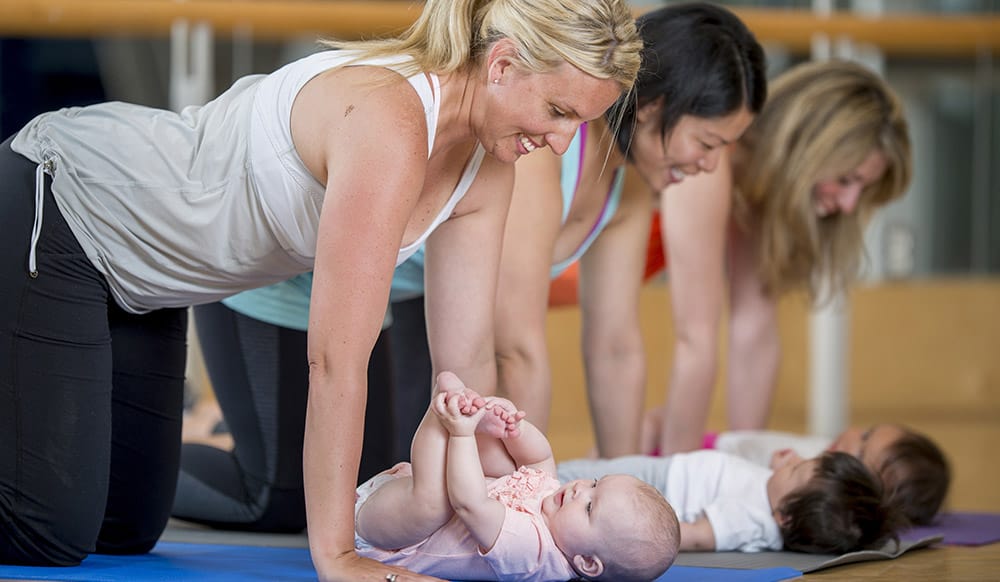
“My body has given me the greatest gift of my life.” – Hilary Duff

If you are experiencing any of the following after pregnancy 6 weeks post-partum, consult with a physiotherapist:
- Tenting of your abdominal muscles (diastasis recti)
- Difficulty with activities of normal living
- Urinary or fecal incontinence when you cough, sneeze, laugh, exercise, etc.
- Pain with intercourse
- C-Section scarring, episiotomy or tearing
- Any bulging at the opening of the vagina
- Heaviness or pain in your back, hips, abdomen, pelvis, rectum or vagina
- Pelvic Girdle pain (difficulty walking or transferring)
- Difficulty emptying your bowel or bladder
- Constipation
The first 6 weeks post-partum, sometimes called the 4th trimester is a time to get plenty of rest and allow your body and nerves to recover from birth. This is not a time to get back to high-intensity exercise. If during this time you have any discomfort or concerns and want to have an assessment or treatment, please come in for a visit. Although we do not do an internal vaginal exam until 6 weeks post-partum, we can assess externally.
What does the research show?
- 50% of women have some degree of prolapse after giving birth (Hagan et al, 2011)
- Pelvic floor physiotherapy should be the first line of treatment for women with urinary incontinence and pelvic organ prolapse
Recent Posts from our Blog
Visit our About page to learn how Ana and Kate can help you.
Download the Pelvic Health Pregnancy and Beyond brochure for more information.
Love yourself enough to set boundaries. Your time and energy are precious. You get to choose how you use it. You teach people how to treat you by deciding what you will and won’t accept.
– Anna Taylor





